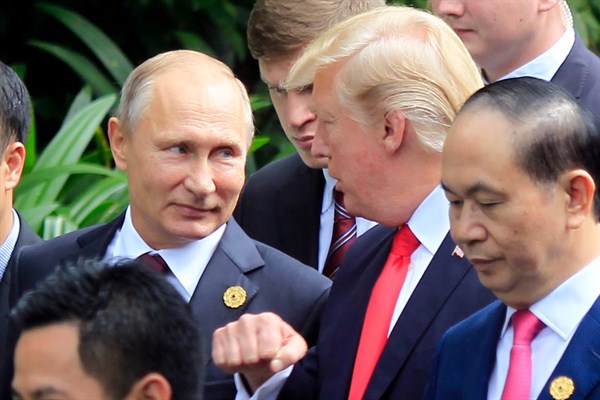Much of the commentary surrounding the upcoming summit between U.S. President Donald Trump and his Russian counterpart, Vladimir Putin, has focused on geopolitics. Will Trump change America’s position on not recognizing Russia’s annexation of Crimea? Can Putin offer concessions on the Russian position in Syria or Ukraine? Most importantly, will the United States and Russia resume talks on ensuring a level of strategic stability, especially when it comes to nuclear weapons?
There is, of course, not a good deal of optimism for any substantial breakthroughs in Trump and Putin’s meeting next week in Helsinki. Sanctioning and punishing Russia is by far the only truly remaining bipartisan issue in the U.S. Congress. Few on Capitol Hill have any appetite for giving Trump any sort of flexibility to offer sanctions relief in order to induce concessions from the Kremlin, especially when many Democrats believe Trump sits in the Oval Office only because of Putin’s nefarious assistance. In turn, there are no signs that Moscow is prepared to admit its role in interfering in the 2016 U.S. elections, or that it is prepared to withdraw from Ukraine or Syria on terms that Washington would find acceptable.
Given his views on the desirability of improved relations with the Kremlin, Trump is also at odds not only with much of the U.S. national security bureaucracy, but his own appointees to the National Security Council, the State Department and the Pentagon. His oft-stated desire to conclude some sort of grand bargain with Moscow is not even shared or supported by his own foreign policy team.

